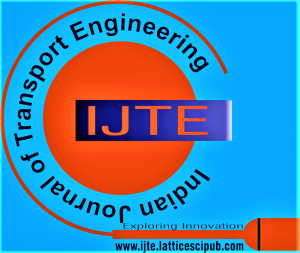![]()
Dynamics, Implications and Management Strategies of Transport Constraints in Fako Division, South West Region-Cameroon
Tufoin Kilian Diang1, Tosam Hycinth Ngong2, Ngwa Patience Lum3, Ajukebi Linda Ebob4, Ndi Roland Akoh5
1Tufoin Kilian Diang, Ph.D Scholar, Department of Geography, University of Yaounde 1, P.O Box 755, Yaounde, Cameroon.
2Dr. Tosam Hycinth Ngong, Department of Maritime Transport, Higher Institute of transport and logistics, University of Bamenda, P.O. Box 39 Bambili, NWR-Cameroon.
3Ngwa Patience Lum, Ph.D Scholar, Department of Geography, University of Bamenda, P.O. Box 39 Bambili, NWR-Cameroon.
4Ajukebi Linda Ebob, Ph.D Scholar, Department of Geography, University of Yaounde 1, P.O Box 755, Yaounde, Cameroon.
5Dr. Ndi Roland Akoh., Department of Geography, University of Yaounde 1, P.O Box 755, Yaounde, Cameroon.
Manuscript received on 20 Jun 2023 | Revised Manuscript received on 11 July 2023 | Manuscript Accepted on 15 November 2023 | Manuscript published on 30 November 2023 | PP: 10-19 | Volume-3 Issue-2, November 2023 | Retrieval Number: 100.1/ijte.B1908113223 | DOI:10.54105/ijte.B1908.113223
Open Access | Ethics and Policies | Cite | Zenodo | Indexing and Abstracting
© The Authors. Published by Lattice Science Publication (LSP). This is an open-access article under the CC-BY-NC-ND license (http://creativecommons.org/licenses/by-nc-nd/4.0/)
Abstract: Transport dynamics and management strategies of emerging constraints for efficiency and development is critical. When transport systems are poorly integrated with insufficient infrastructure, worst of all in the mist of insecurity, it hinders mobility, production and distributions making development to be stunted. It was against this premise that this study was designed to investigate the dynamics, implications and constraints confronting the transport sector in Cameroon and in Fako Division in particular. These are key issues that cannot be relegated to the footnotes and if actions are not taken development will be dared. Data for this study were sourced from secondary and primary sources. Secondary data were obtained from exploration of published and unpublished documents relevant to the study. Reports, journals, articles, decrees made up some of these documents. Primary data were sourced from field surveys where a convenient sampling technique was used to administer 313 copies of questionnaires to 10 sampled localities in Fako Division. Auxiliary primary data were gotten via interviews and observations in motor parks and ports and along the Fako coast. Results indicated that the transport sector in Fako Division is dynamic and have induce and plethora of related activities since it is derived demand. Response score revealed (52% and 41%) of high appreciation and appreciation respectively to the relevance of transport in trade and commerce. emerging constraints were noted to be; insecurity, depreciating infrastructure and loosely integrated systems of transport which is bogging down mobility, efficiency and effectiveness of the transport sector in the Division. Also, results noted that management strategies of the emerging challenges transcends to curbing insecurity, improving transport infrastructure to effectively integrating transport modes and systems. Furthermore, revamping the secondary ports (Tiko, Limbe and Idenau), construction and rehabilitation of road edges and vertices can improve the functional and transactional operations of the transport sector in Fako Division and in Cameroon in general. This study recommends an effective integration and improvement of transport infrastructure in Fako Division to boost the transport sector to be more dynamic and efficient to induce development.
Keywords: Fako, Development, Transport, Constraints and Dynamics
Scope of the Article: Transport Operation
